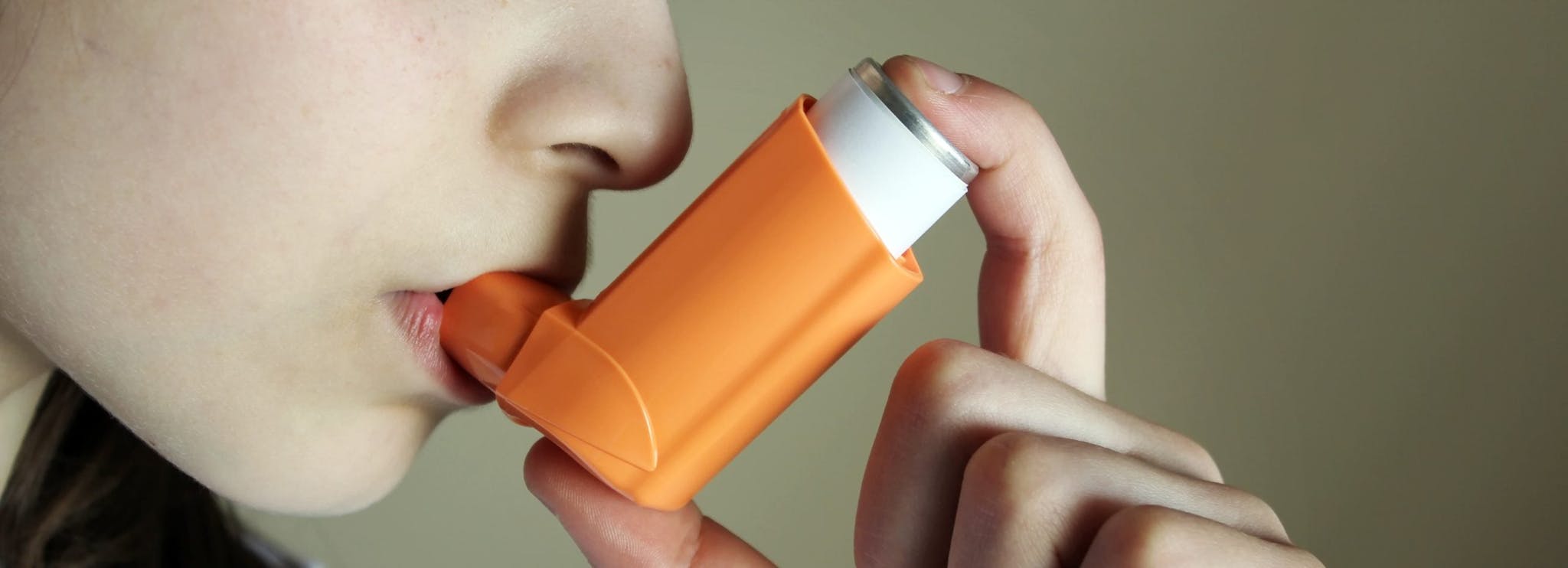Asthma triggers vary from one person to another, and avoiding known triggers plays a large role in asthma management. Here are some tips to keep your home and family free of asthma triggers, along with some of the most common triggers out there.
Asthma Triggers
Common asthma triggers include:
- Allergies: In many cases, allergies can trigger asthma symptoms. Allergens include dust mites, animal dander, mold, pollen and cockroach droppings.
- Tobacco smoke: An irritant that often aggravates asthma. Other aggravators can include air pollution, strong odors or fumes.
- Exercise-induced bronchoconstriction (EIB): A condition where patients with asthma develop symptoms while exercising.
- Medications: Certain medications, such as aspirin or non-steroidal anti-inflammatory drugs (NSAIDs) like ibuprofen and beta-blockers, can cause or worsen asthma symptoms.
- Anxiety and stress: These can both trigger asthma attacks and increase symptoms. As such, management of stress—including proper rest, diet and exercise—can help with managing asthma overall.
- Infections: Viral and bacterial infections like the common cold or sinusitis.
- Exposure to cold, dry air or significant weather changes.
- Acid reflux, both with or without heartburn.
Now let’s look at some of the specific causes of these triggers, and how you can protect yourself and your family from them.
Household Fumes
Various kinds of smoke and fumes can trigger an asthma attack, including gas, wood or kerosene stoves along with exhaust from cars or busses. All fuel-burning appliances can produce nitrogen dioxide, which can’t be smelled but can irritate the airways and trigger asthma. Some tips for staying free of these kinds of fumes include:
- Ensure that stoves are properly ventilated. Use proper exhaust fans for outdoor vents with gas stoves.
- For wood stoves, follow manufacturer’s guidelines and ensure doors fit tightly.
- Crack a window or use an exhaust fan when using an unvented kerosene or gas space heater.
- Before using a fireplace, ensure that the flue is open and smoke can escape through the chimney.
- Have your heating system cleaned and inspected yearly.
- Never keep the car idling inside an attached garage, as this can leak exhaust fumes into the home.
Chemicals
Common household products like cleaning supplies, paint, pesticides, perfumes and soaps can trigger asthma. Here are some tips, particularly involving children:
- Keep all cleaning products away from children’s reach and out of range of where they can breathe fumes.
- Look for soaps, shampoos and detergents that are fragrance-free.
- Ensure your child isn’t exposed to fumes from harsh cleaners. Look for nontoxic or all natural cleaning options.
- Read the labels on all cleaning products, and carefully follow all directions.
- Open windows when using cleaning products to allow fresh air in.
- Clean when your child is not at home or in another room.
- Don’t wear perfumes or colognes.
- If you regularly use art supplies like paints, inks or clays, keep these stored tightly while they aren’t being used.
- Don’t use air fresheners or scented candles.
Pets, Cockroaches and Mold
Allergies to pets, pests and mold can be common asthma triggers, especially for children. Some tips for reducing exposure include:
- Keep pets off furniture, bedding and carpets where their dander might build up. Don’t let them sleep in children’s bedrooms.
- Make sure hands are washed after playing with or petting pets.
- Wash sheets and other bedding in hot water at least once per week to reduce dust mites, and consider dust-proof covers for pillows and mattresses.
- Limit use of pesticide sprays when possible. Store all food carefully and block cracks where roaches might be able to get in, as alternatives to sprays.
- Prevent mold by repairing leaks or areas where excess moisture is present in the home. Replace moldy carpets or ceiling tiles.
- Open windows or use exhaust fans while cooking or showering to help prevent mold growth.
Smoke
Secondhand smoke is a common asthma trigger, and even the smell of smoke can cause breathing issues for some children. Tips to avoid smoke include:
- Don’t allow smoking in the home or car.
- Don’t allow other caregivers to smoke around your child.
- For those who must smoke, ensure it’s done outside and away from all windows and doors. Make sure hands are washed after smoking, and consider using a shawl or blanket while smoking to reduce smoke residue on clothing.
If you or a family member is struggling with asthma triggers around the home, your doctor can offer additional recommendations for prevention.
I practice the full range of family medicine including obstetrics, pediatrics, adolescent medicine and adult medicine. I also practice some orthopedics, remove lumps and bumps, and perform colposcopy, cryotherapy and vasectomies.
Sources:
“Avoiding Common Household Asthma Triggers.” WebMD. http://www.webmd.com/children/guide/asthma#1
“Asthma Triggers and Management.” American Academy of Allergy, Asthma and Immunology. https://www.aaaai.org/conditions-and-treatments/library/asthma-library/asthma-triggers-





